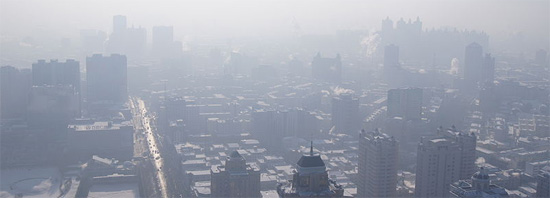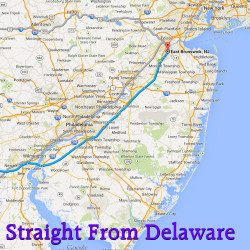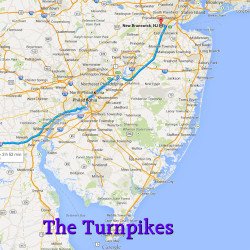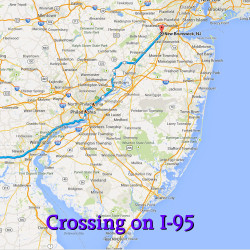Monthly Archives: February 2014
As if we couldn’t have fewer cable options, Comcast plans to buy Time-Warner Cable:
Comcast and Time Warner Cable confirmed Thursday that they will enter into a $45.2 billion deal to combine the nation’s two largest cable companies, a mammoth proposal that will trigger close scrutiny from federal regulators.
Swooping in to top a competing bid by Charter Communications, Comcast will pay 2.875 of its shares to TWC shareholders. The companies’ respective board of directors have approved the all-stock agreement, which will see all of TWC’s 284.9 million shares acquired at a value of about $158.82 per share. Current TWC shareholders will own about 23% of Comcast’s common stock.
The Justice Department is expected to take a look, but will ultimately approve it, most likely.
My first thought was, as with the proposed AT&T-TMobile merger, was that the administration would put a stop to it one way or another. But I thought Matt Yglesias made a great point on Twitter:
Worrying that mergers will reduce cable competition seems like multiplying zero by larger numbers.
— Matt Yglesias (@mattyglesias) February 13, 2014
From company-to-consumer, our choices were limited to one before and they will be limited to one if this happens. The only immediate difference from our end is that more people will be limited to Comcast and nobody will be limited to TWC. Customers could actually benefit. When I was in Arapaho, our cable company was bought out twice and each company offered better prices than the last for Internet (more on the cable vs ISP distinction in a minute). One of the real cost-drivers for cable TV are the negotiations with the channels. Since there is competition for cable in the form of satellite, that has always given the networks more leverage than the cable companies. Networks tend to win these battles. CBS recently smacked around TWC. This is probably not good for consumers, especially those that (unlike myself) favor a la carte programming and complain about having to pay for channels they don’t want to watch. One of the things the networks bargain for against the cable companies is the inclusion of more of their channels (and the subscriber fees to match).
If this does give Comcast more leverage than Comcast and TWC had previously, it could be a win for consumers. Further, most of the bigger concerns about Comcast – that they own NBC and were not only carriers of other networks but competition – were at least theoretically dealt with in the previous round of negotiations when Comcast purchased NBC.
What has me concerned, however, is the Internet side of things. Yet Yglesias’s Multiply By Zero also applies there as well. The primary concern I would have is that Comcast is in a better position to set itself up for direct competition than Time-Warner was, but I’m not sure if that holds water. Comcast+TWC still doesn’t have enough market position to easily challenge Netflix and Amazon to the point of throttling them, and they’re legally prohibited from doing so as a condition of the Comcast-NBC merger (despite the recent Net Neutrality reason that would otherwise apply).
To be clear, for a variety of reasons, the Internet in the US tends to be slower than in other countries and Comcast already does particularly poorly when it comes to Netflix. Also, the legal prohibition will run out, at which point it’s unclear in what ways Comcast would be able to use its new market advantage. And yet Comcast customers presently enjoy Net Neutrality rights that TWC customers don’t, as a result of letting a previous merger go through. It seems that more concessions could be called for this time around, benefiting consumers more.
Comcast is not promising to lower prices or slow the rate at which prices increase, though my parsing of the statement means “than it has been in the past” rather than “than if this doesn’t happen.”
My rather strong inclination here is to oppose the merger. Perhaps as a reaction to and rejection of the degree of consolidation we’ve seen thus far. Local cable and ISP’s don’t operate in a free market, which means that we’re not going to see the benefits that sometimes come with consolidation… but also means that – unlike with AT&T and TMobile – the costs aren’t the same, either. So after my initial “Ack!” response, I’m coming up short on reasons why this particular consolidation should seem particularly troublesome. I just hope the feds can negotiate some goodies.
Below the Bikini Line, a Growing Trend
Gwyneth Paltrow referred to the more natural look of the 1970s when describing her bikini area on last spring’s press tour for the movie “Iron Man 3.” Lady Gaga posed on the cover of the Winter 2013-14 issue of Candy magazine in full pubic bloom. And then the actress Gaby Hoffmann appeared naked, with an untrimmed thicket, in the film “Crystal Fairy and The Magical Cactus” and on the television show “Girls” (playing a similar troubled but free-spirited character in both).
In an interview, Ms. Hoffmann said she simply prefers a fuller style on herself. “If I just stay true to what I like, every decade or so I come into fashion,” she said, adding that her experiments with hair removal have been limited. “I grew up with a lot of naked women with big bushes,” she said. “It never occurred to me to remove it. I was going to a friend’s wedding in southern France. I knew she would be tickled if I showed up with my bikini line waxed. I got it, and it was a first. I find it uncomfortable.”
She is equally uncomfortable, though, with the attention she is getting for the look. “It’s one of those topics that unfortunately is a conversation that won’t be over until we get over our weird puritanical obsessions with sex and the female figure,” Ms. Hoffmann said.
Grumpy puritanical conservative-type that I am, I consider it the end of civilized civilization that this is a national conversation (particularly involving individual people). Obviously, though, Peter has a vested interest in such things.
In the 60’s and 70’s, we passed a lot of environmental laws that made manufacturing here more expensive. Since then, policy and technology have made globalization more feasible. Arguably, the latter policy has undermined the rationale of the former policies. Which is to say, manufacturing in China has resulted in more of the pollution that American laws sought to alleviate. The view in China isn’t pretty:
Harbin, the capital of Heilongjiang Province and home to 11 million people, registered fine particulate (PM2.5) pollution levels beyond 500, the top of the scale on the Chinese Air Quality Index, a level which is considered hazardous to human health. Measurements in some parts of the city reached 1,000 micrograms per cubic meter. As a result, authorities forced primary and middle school closures and the shutdown of the airport and local highways.
By contrast, Los Angeles, where I am now based and which typically has some of the worst air quality in the U.S., had U.S. Environmental Protection Agency AQI levels for PM2.5 between 48 and 108.
And a whole lot of it is our fault. Meanwhile, despite a scramble to do something about it, China is projected to use almost 3% more coal this year than last year. When we talk about what we need to do globally about carbon emissions and global warming, it’s hard not to consider China. On what basis would we be able to demand that they sacrifice their exploding economy for our air? The more straightforward solution, to tax imports on the basis of the pollution caused by the source country, is anathema to current business, economic, and policy theory.
All of which is washing back onto American shores:
Pollution from China travels in large quantities across the Pacific Ocean to the United States, a new study has found, making environmental and health problems unexpected side effects of US demand for cheap China-manufactured goods.
On some days, acid rain-inducing sulphate from burning of fossil fuels in China can account for as much as a quarter of sulphate pollution in the western United States, a team of Chinese and American researchers said in the report published by the US National Academy of Sciences, a non-profit society of scholars.
Cities like Los Angeles received at least an extra day of smog a year from nitrogen oxide and carbon monoxide from China’s export-dependent factories, it said.
One of the things I have a hard time squaring with the desire to reduce energy consumption for the sake of the environment is how utterly addicted the world is to energy. It’s not unlike some folks on the left who speak almost triumphantly about Peak Fossil Fuel. That could be good for the environment, but I can more easily imagine how it will be bad for the environment in other ways. Our addiction to energy is such that the more desperate we will become, the less we will let anything stand in the way of extraction. Including the air, the water, and the land.
At this point, our only real hope is that renewables and nuclear will be able to affordably satisfy that addiction. Subsidies could help the technology become cheaper, but mostly on a short and medium term basis because at some point cost will be cost and it will likely become more important than the existence of Florida.
 Smart managers fire people quickly when they take over. For all of the complaints I hear about employment-at-will, I am pretty sure I’ve seen more bad people kept around than good people fired.
Smart managers fire people quickly when they take over. For all of the complaints I hear about employment-at-will, I am pretty sure I’ve seen more bad people kept around than good people fired.
Some say that college rankings are ruining higher education. I know they play a role in my alma mater restricting future enrollment growth. Looks like gaming them is effective, however.
In the longer term, liberal arts majors make more than professional majors. What they mean, though, is “liberal arts majors are more likely to go to grad school and so end up making more money.”
At Scientific American, David Skorton argues that scientists should embrace the liberal arts.
William Saletan looks at the numbers and says that it’s just not true that most Americans oppose the legality of most abortions. Which is right, though even by the poll he cites, most Americans support a stricter regime than Roe v Wade allows for. Oddly, American views haven’t changed since RvW passed.
How in the world can you write an article about real life superheroes in costumes and not have photographs?
Why do people need to google to ask why Montana, North Dakota, South Dakota, Minnesota, and Michigan are so cold? Can’t they look at a map? Here’s a map of people asking google why states are something they are.
Amazon is talking to networks about a set top box. Kindle TV? Wired says Netflix is going to rule TV.
I recently wrote a link on the virtues of pessimism. Today, the benefits of optimism.
DNA has solved a Titanic hoax.
In 2013, eighty-seven folks were exonerated of the crimes for which they were convicted. Twenty-seven of them were exonerated for convictions of murder, arson, and sex crimes that it was determined never happened (or weren’t crimes).
Chris Smith laments the binge-watching trend (the formatting on the link sucks, but I haven’t found a properly formatted version of the article, so sorry):
Now, thanks to the advent of high-speed internet and the connected services they’ve enabled, technology has surpassed the content. You no longer have to buy (usually) expensive boxsets to buck the TV trend – it’s all piped straight to your television for a monthly low-cost fee.
Before we scrap the old model forever, though, it would be wise to consider some of the bi-products of that repeat business model; little things like anticipation, excitement, longevity, shared experience and pop culture immortality.
Ask yourself this: would the global obsession with the Breaking Bad finale have happened or been such a cultural event had we watched it like House of Cards?
“Those final eight episodes of Breaking Bad… now that was an extraordinary experience. From the countdown to it coming back from the mid-season break to the anticipation of a new episode on TV each week… wow!” says Thompson.
“That was just a different kind of buzz that [binge watching] doesn’t give you.”
One of the things I really like about television is the social aspect of it. At Ordinary Times they have series of posts on collectively watching shows a couple of episodes at a time (first Fringe, now Babylon 5). It used to be, this was how television was watched. So you’d see an episode and discuss it around the proverbial water cooler. That is indeed, as Chris says, something lost in binge-watching. Particularly when it comes to Netflix’s fare, which is released all at once. It’s increasingly true of regular television as well as it increasingly becomes DVRed, watched on Hulu or some other streaming service, or legally or illegally downloaded, in bulk.
The end result is that it that while we enjoy it more on its own, we enjoy it less socially.
That’s a tradeoff I am increasingly willing to make, though. It’s not so much that I absolutely-positively can’t wait for the next episode to come out. Well, sometimes it’s that but not always. More, it’s that as the responsibilities in my life increase, and television becomes more complex, it’s become really hard for me to remember what’s going on. Especially if I am trying to balance many shows at once. Especially when despite my best efforts I fall behind on a show and the intervals are too long.
This fall season I decided that for the first time I would watch 90% of my shows in half-season bulks. Shows are increasingly dividing seasons into two parts with fall conclusions and cliffhangers. So this fall I mostly got caught up on old TV shows and only watched a couple of shows as they came out. Based as much as anything on how easy they would be to follow. It’s been a rousing success. While I have regretted having to avoid online commentary, I simply ended up getting more out of the shows that I’ve been watching. And I’ve enjoyed them more as none of my watching has been geared towards keeping up.
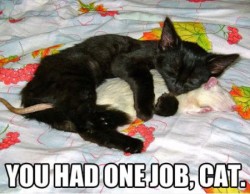 Adam Ozimek explains how deregulation of labor licensing standards could benefit the poor.
Adam Ozimek explains how deregulation of labor licensing standards could benefit the poor.
John Aziz argues that the boom-bust cycle is just something that we’re going to have to get used to.
It’s an ongoing debate over whether or not we want a lot more kids going into STEM and the computer fields. However, this seems pretty unambiguously bad to me. Not just the gender and racial imbalances, but the paltry numbers coming from some parts of the country.
A lot of people have been arguing that there is a bubble in higher education. Here’s an argument I am less familiar with that sounds like it might have some truth to it: People who can afford college aren’t having kids, and people who can’t are.
A new film about Mitt Romney points to a lack of confidence on his part as election day approached, which contradicts the book Double Down.
Kevin Williamson writes on the “big white ghetto” of Appalachia.
According to new data, half of inmate rape is committed by guards and staff.
A new study suggests that Facebook will lose 80% of its user base by 2017. I’ll take that bet, if only because 2017 is only three years away and I don’t see a suitable replacement on the horizon. Will Oregmus won’t take that bet either, and says the research is flawed.
Candy Crush owns the word Candy.
Procrastination is often a case of sacrificing tomorrow for today. Since our tomorrow self is something of a stranger to us, it’s easy to screw that guy.
A network scientist explains that your friends on Facebook really are doing way better than you. I find increasingly that I am an odd exception in that a whole lot of my Facebook friends spend a whole lot of time complaining about their lives.
The future of transportation: electric cars, robocars, flying cars, and trains.
So last weekend to took a trip to The Second Kingdom of Jersey. The maps will say New Brunswick or East Brunswick. That’s not quite right, though. The important part of the maps are three different ways of entering Real Life New Jersey.
The obvious way is straight from Delaware. I had been warned from multiple sources that this is actually not a good route to go and that instead I should go through Philadelphia.
Apparently there is a joke/observation in RLNJ that they never toll you coming in. Yet miraculously, I found out the one entrance where they do. In fact, exiting I-95 and going through Bristol and to the Penna Turnpike, they have you get a ticket and pay a $2.00 toll some 300 yards later. Most expensive toll driving ever. Especially when, contrary to the joke/observation, New Jersey asks for a toll some 1000 yards after I crossed the state line (not a toll to enter Jersey, precisely, but a toll station I guess I happened to run across right after entering the Garden State.
Being not-from-the-east-coast I am not particularly used to toll roads on major intersections, but I am getting used to it. Even so, $6.00 for such a small stretch was just galling.
On the way back it had me crossing while on I-95, which had me almost going straight out of Jersey, it seemed. I drove a really long stretch of Pennsylvania Interstate and, unlike the 300 yards, they didn’t collect a dime from me. So I guess it sort of evened out.
Oddly, one of my GPS apps suggested that I go through Harrisburg. Sounds interesting. Might do that next time.
Game of Thrones set as an opening to a sitcom with the Friends theme:

